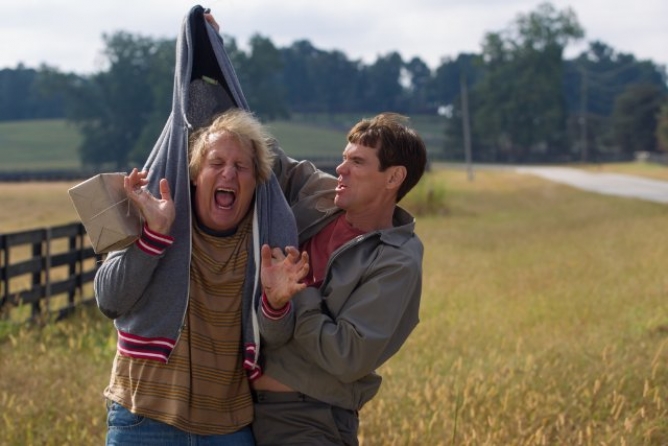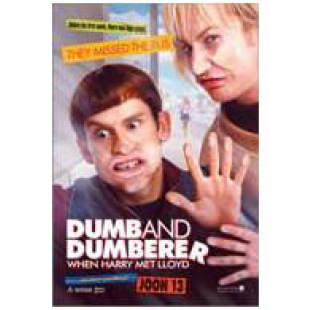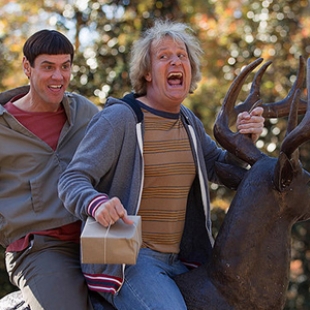Does “Dumb and Dumber To” Go Too Far?
Humor is one of the most subjective emotions. What makes you laugh may be absolute tedium to me—and vice versa. I often see this in a crowded movie theater where some people are laughing while others appear bored, confused or perhaps even offended. I was the latter while watching Dumb and Dumber To the other evening. Frankly, I disliked the first movie in this franchise; so it was with low expectations that I sat down to view the sequel. However, after two decades in the making, and having watched some admirable performances from Jim Carrey, I let my mind believe that time could result in something far better than before.
Sadly, I now recall that decomposition of garbage takes just as long.
Considering the politically correct world we are currently asked to conform to, I was amazed that about 300 people in my neighborhood would sacrifice an evening (including battling near-zero degree temperatures) to watch two late-mid-life men pretending they have mental illnesses. Lloyd and Harry (played by Jim Carrey and Jeff Daniels) are fabricated fools that aren’t clowns but rather more closely mimic people you and I may know or meet within our own experiences. They cross that fine line between playing a goofball that utilizes slapstick gags to get a laugh versus a person who is unaware of how he or she may be struggling to function and complete the tasks necessary for independent living.
By now some of you are thinking I’m a sad, burnt out media critic who can’t let loose and laugh at two guys who wipe their feces on a glass of beer so they can get a free replacement. Yes, I admit that after more than 20 years, I’m long tired of hearing poop jokes that many Hollywood writers overuse in the same way food producers utilize MSG to cover up the lack of “real” ingredients. However, this film’s obsession with scatology and bodily functions still pale against the portrayals of our “heroes”.
I believe there is a difference, for example, between a character like Homer Simpson and that of Harry Dunne. Homer is a caricature of a variety of people we encounter—and perhaps some of us see a few of Homer’s flaws within ourselves. He’s an exaggeration of workplace incompetence, a reflection on the state of fatherhood and a political satire that spans a spectrum of beliefs. Sometimes I find Homer exceptionally funny. Other times he is offensive and distasteful. But, even when I don’t like Homer, I don’t see him as ridiculing a specific segment of people.
If Homer Simpson makes me laugh, it’s because I’m either laughing at traits I see in myself or I’m amused at a wide criticism of societal circumstances. Conversely, when I laughed a half-dozen times in Dumb and Dumber To, I was laughing at Harry and Lloyd, and that made me feel uneasy. I couldn’t help but think how I would feel if I was laughing at a friend of mine with Down syndrome or another who is autistic. Even more concerning is how children in the audience (and there were more than a few) interpret characters like Harry, Lloyd and a female character named Penny who is also portrayed with mild mental challenges. Would this movie engender greater compassion or respect for children they may meet on the playground who possess similar traits?
Comedy is the world’s great mitigator. Done well, it can force us to look at ourselves and motivate self-improvement. It can help us to recognize unnecessary conflict and move us toward retribution and forgiveness. I hope screenwriters will continue to see the potential of this genre and work toward Smart and Smarter in the future.





